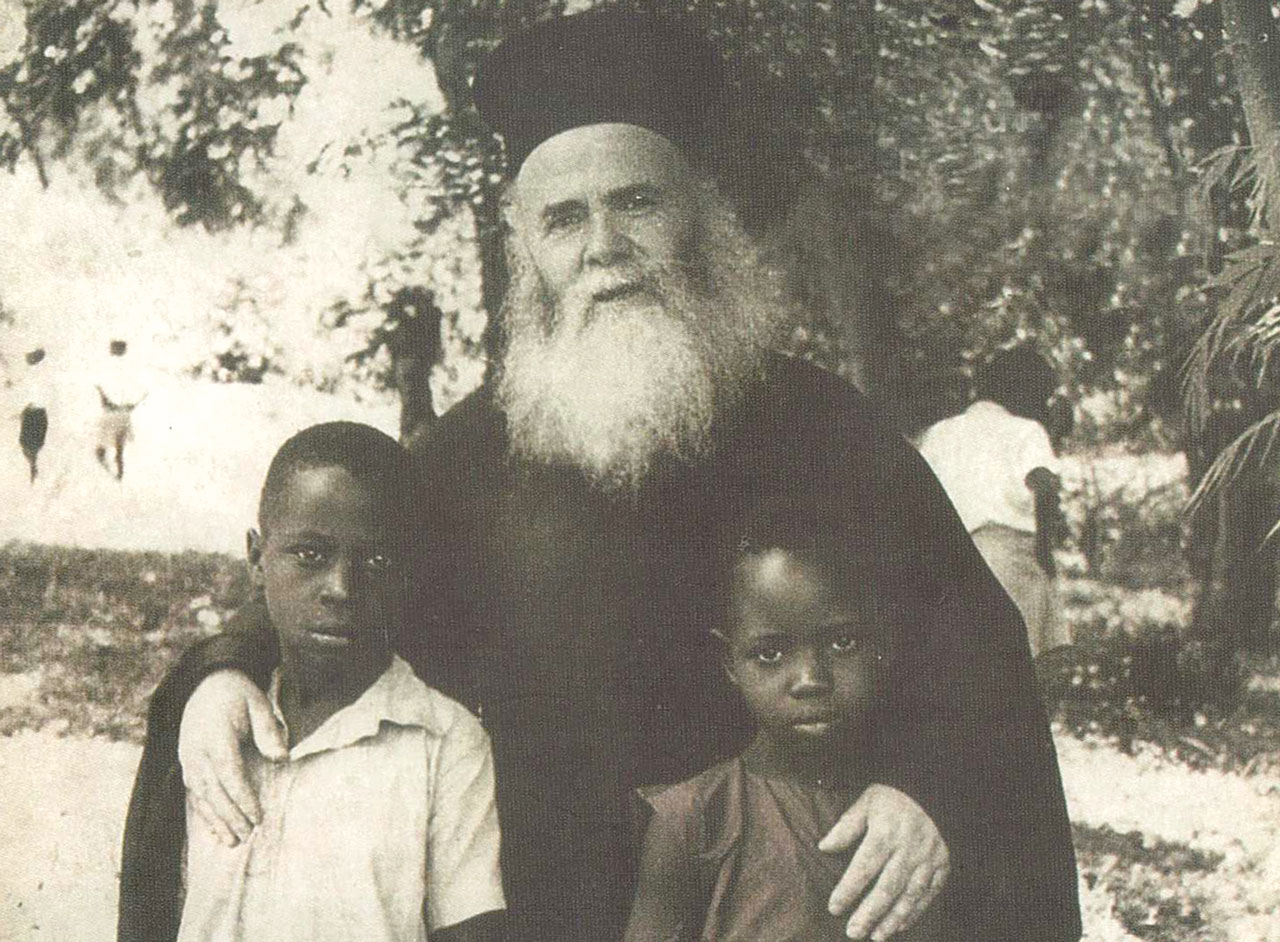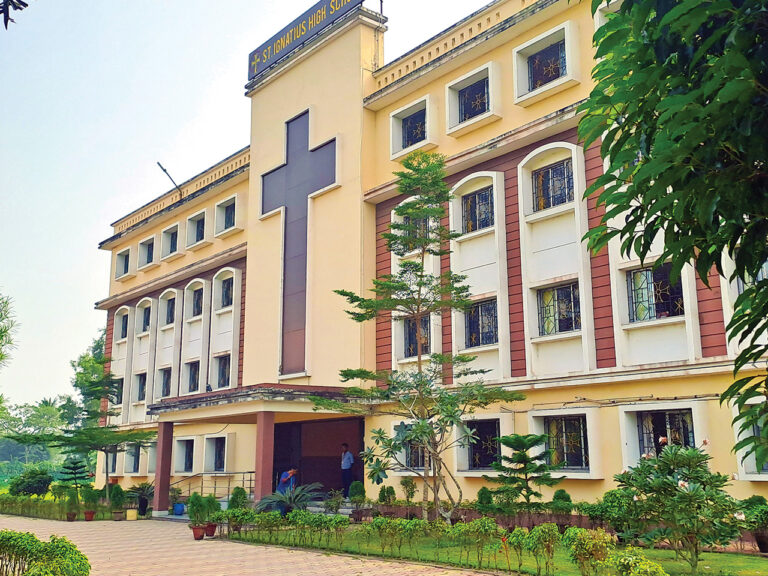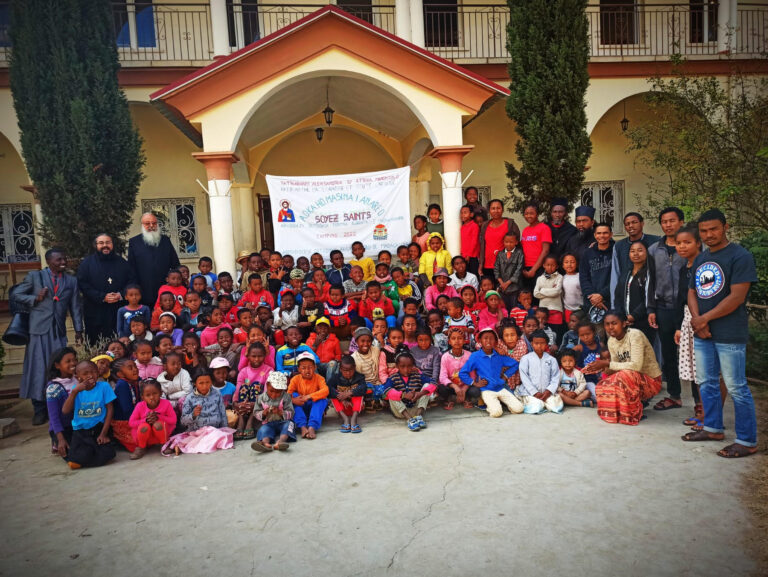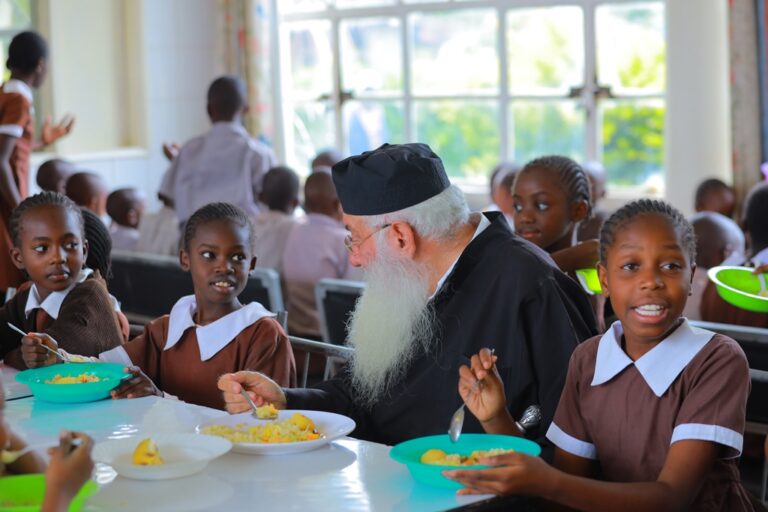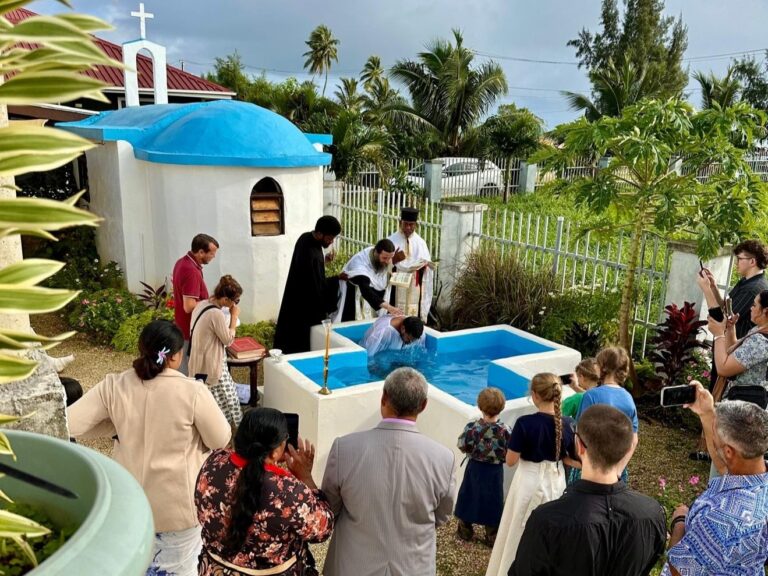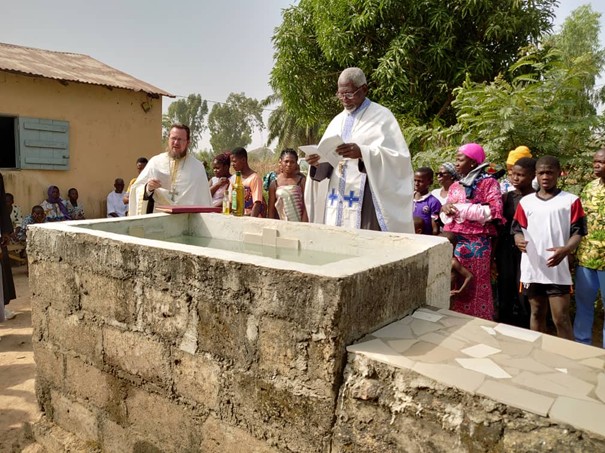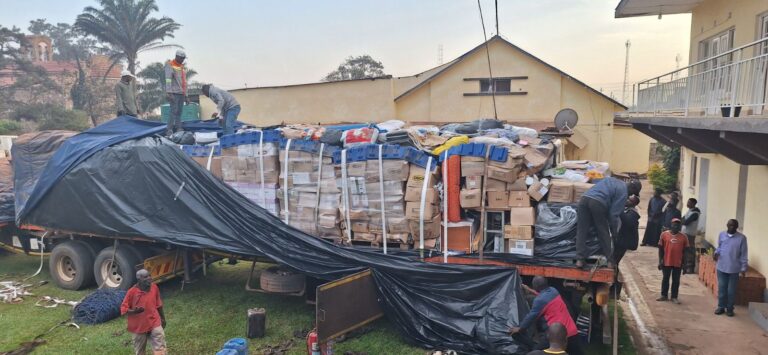How Fr Chrysostomos Papasarantopoulos started in Africa
For historical reasons and to be precise, it would be good to follow the preparation of Fr Chrysostomos Papasarantopoulos for his long and unknown journey to the Black Continent. For this reason, we will let him open his heart to us to listen to its vibrations and speak to us through his own writings and his various thoughts about the preparation for this adventurous journey to East Africa. I think his thoughts are moving, as it really shows how much desire and love he had for working on the African continent, even though he was suffering physically, as his health was poor. As described in his diary, there were many days when he felt very unwell. Yet he did not say “let me stay here somewhere and rest, why do I want to go to Africa”. He had made up his mind and he had to go to East Africa. Let us let Fr. Chrysostom tell us some of the thoughts and ideas that God, I believe, led him to write at that time about his journey in East Africa.
The year was 1960, when Fr Chrysostomos had already taken the decision for the great journey of his life. A journey that opened new horizons and revealed a new page in the course of his life on earth. He wanted this unknown journey to have a direct connection with the person of Jesus, where he was born, baptized, preached, miraculously worked, crucified and finally resurrected. He arrived, then, in the Holy Land. Through his diary notes, Fr Chrysostom describes the various services and the most important places he had the opportunity to visit. He describes, in detail, the people he met, high priests and priests, as well as the then Patriarch Benedict of Jerusalem. His participation in the services was, it seems, something that overwhelmed him, because, by taking part in the sacred services, his mind, soul and heart were on his destination, the one he had set in his mind, to journey towards the unknown, until that moment, African continent and to become the pioneer, the one who would strive, under difficult and adverse conditions, to offer as a genuine fighter for Christ a small, minimal gift of gratitude to the Lord Himself for the hitherto divine blessings in his life.
He wanted Fr Chrysostomos, during those days in the Holy Land, to prepare himself completely and to see that, at last, his visions could find their fulfilment through a miracle alone. So he prayed, with all the strength of his heart, that he might be able to walk upright and rock steadfast through the flame that burned in his soul, remembering a beautiful saying that ‘there are some ideas that always find us young and keep us young. One such idea is the Eros of eternal beauty, which the universe fulfils’. To complete these thoughts, Fr Chrysostom adds that “the universe, that is, creation, embodies and incarnates its most beautiful element, which is man, the man of the earth”. The one whom, at that moment, where he is – in Jerusalem – he is preparing to embrace and give spiritual and divine content to. The one who would make the Africans, through their purity and faith, understand that they too participate and can attain to spiritual greatness and see the heavenly united with the earthly, thus being led, in the end, through disappointments, ignorance and storms, to the splendour of the Resurrection. There, kneeling at the Holy Sepulchre, he envisions a thrilling rebaptism, through faith and devotion to the lofty heights of immortal victory. He shed rivers of tears, praying that he would remain committed to his “crazy” and extreme decision to join them, to fight with them.
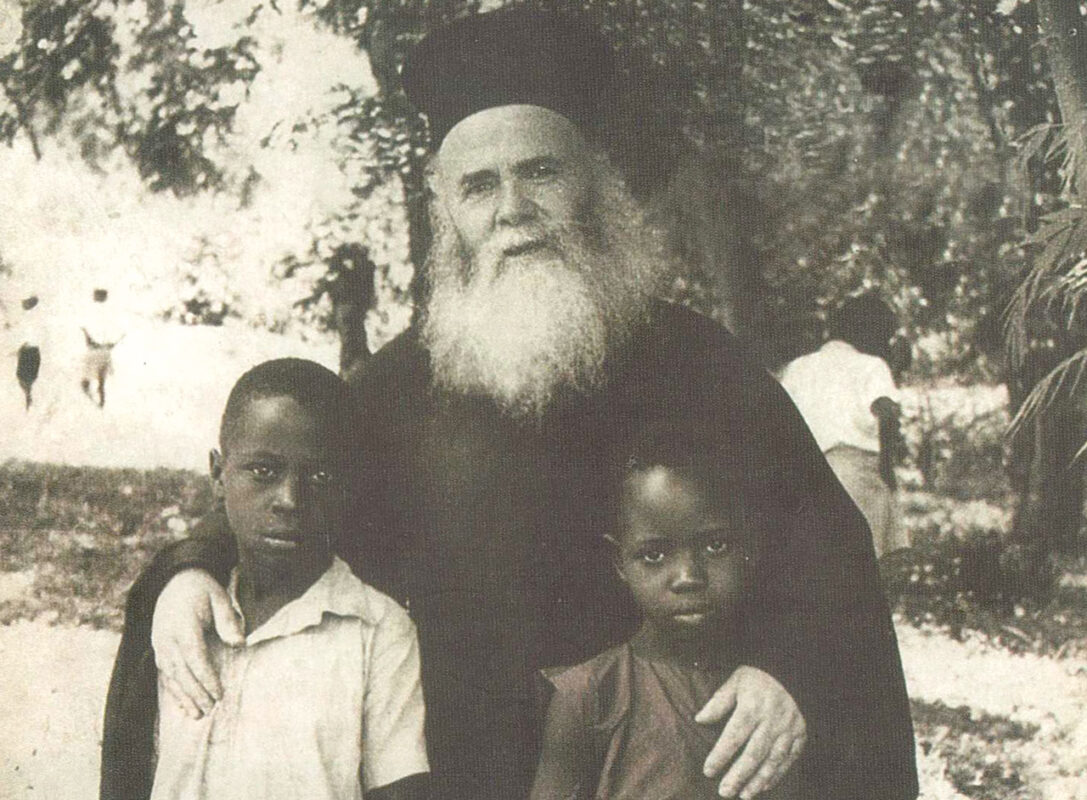
On 24 April 1960, as he notes in his diary, he arrived at the port of Alexandria and writes, in conclusion, his first thoughts: “I returned to my room and stayed there until 10 o’clock at night. I went back to my room and returned to my room until 11 o’clock at night. May His grace prosper that I may reach the destination and accomplish to a good degree my mission for the glory of His Holy Name and His Church for the salvation of many souls, for which He was rewarded on the Cross.” The very next day, he had a meeting with the then Patriarch of Alexandria, Christophoros, with whom he discussed his desire to go to Africa to undertake voluntarily and on a trial basis this wonderful work of evangelization. He characteristically confessed: “I am not worthy of anything, but may the work of Christ and His Church prosper… Lord Jesus Christ, for Thy Holy Name’s sake I have left my friendly country and all my comforts in Athens, I have separated myself from my brothers and sisters in Thee there and have come here, do with me what Thou wilt and as Thou wilt. Thy all-sufficient will be done in all things.”
The way has already been paved for his fervent and deep desire. During his stay in Egypt he met not only the Patriarch but also other high priests and clergymen then serving in the Patriarchate of Alexandria. There were times when Satan wanted to test his patience and faith. But nothing could shake him or change his already made decision to go to the nations. Something that is clearly shown in his following thoughts: “Tuesday 3 May 1960… 3 March 3, March 3, March 3… My case is stagnant, but I await the salvation of the Lord. There are moments of cowardice, but the grace of Jesus drives them away…” and adds: “The righteous shall see and hear”… And the first attack. “Lord, crush Satan underfoot at once”… Or shall we call this the first abandonment? But “I am alone.” …”. And he continues the next day. If I put it down, I think I shall find too much passive. And my assets? What shall we render unto the Lord? Bless, O Lord, the little life thou hast yet appointed us in this land, that it may be fruitful. “Grant, O Christ, before we go down, what good thing we may do…”
So, it all went, up to that point, smoothly. The preparations were completed. With the consent of the Patriarch and with a letter from the then Metropolitan of Ireneupolis, Nicholas, later Patriarch of Alexandria, the old missionary eagle, on May 23, 1960, took flight, spread its wings and reached the place where its desire was fulfilled. He treads, at last, the hallowed and blessed soil of Africa. By road, from Nairobi he makes his way to Uganda, where the missionary centre of the Metropolis of Kenya was then. For lack of space we will not quote his impressions of this long journey, where he describes in a vivid style the beautiful nature of Africa and its people.
On this subject, we quote the text from the diary notes of Fr. Chrysostomos in which he describes his arrival in Kampala and his first meeting with the then Metropolitan and our African brothers:
Π
It is 10 a.m. when we arrive at the house, where Mons. Bishop Nicholas of Irinople. Fr. Eustathios is blissfully knocking on the door twice. Who? Me. The Venerable Father stands up. In the meantime we are invited to the adjoining house of the homosexual where we are welcomed and seated on the veranda. The Rev. prepared himself and came there and received us in a friendly and paternal manner. We were also served breakfast and sat in the hall. The Rev. notified his friend Fr. Spartan and the other black priests. Six of them came. Cyril, Athanasius, Joachim. We were greeted with a salute and the “Christ is risen”. They all wear the Greek priestly habit. They prayed and discussed the hour until 12 noon and beyond. They departed. In the meantime the meal was taken. We ate and must have rested a little. A bed was moved for me to the dining room. In the afternoon about 5 p.m. we all went, accompanied by a Mr. F. Sideris, to the old church of Fr. Sparta, the Orthodox Greek Church of Sparta.” A burying rectangular building covered with tin lying near the top of a hill. The blacks around Spartan have here several facilities, schools and so on with a small hospital, all of course incomplete and sketchy, but they exist and that is something. All covered with tin. Here the Rev. is thinking of building now a small church, a residence for me and perfecting the schools and hospital. Later a magnificent Church and Cathedral will be built on the nearby overhanging hill. We sat up late and returned. Conversations, food. It was suggested that we go next door for a while to sit down, but my head is now buzzing like a water-mill. I begged to be excused and stayed. I sat down for a while, and wrote a letter and spread it out. It was not long before sleep. Thus passed one of the most important days of my life. “May the name of the Lord be blessed and given for ever and ever.” Whatever I say and whatever I write will be nothing to His glory and to the expression of my feelings. Great emotions are expressed only through silence…”.
It should be mentioned here that the then Metropolitan Nicholas of Irinople had, in the early 1960s, entrusted the then African pioneer Fr. Ruvim Mukasa Sparta to write a letter to Fr. Chrysostomos Papasarantopoulos, who was already anxious to reach the African continent. On March 29, 1960 Fr. Sparta to Fr. Chrysostom:
“I bring to your attention the order of our Reverend His Eminence, Metropolitan of Irinople and all East Africa, Mr. Nicholas, that the Metropolitan wholeheartedly accepts your coming near us to enlighten us to the truth of Orthodoxy. He only begs you to wait a little while so that he can prepare the necessary things for your permanent stay here. He thanks you most sincerely for your devotion and self-sacrifice for our Faith. And he wishes that the Most Merciful God may give you warm love and good health.”
On May 10, 1960, Metropolitan Nicholas writes to Fr. Chrysostom, when he was still in Alexandria, a letter informing him that:
“…Your great perseverance and your desire to serve the mission in Uganda has given me much thought; not that we have no need of workers in the vineyard of the Lord, but because the church here is poor… therefore we have decided to employ you. Enclosed you will find a note which I ask you to fill in… so that we may obtain permission to admit you here.
A month later, on June 9, 1960, Metropolitan Nicholas, excited by the presence of Fr. Chrysostom in Kampala, delivers the following letter to him:
“By this letter of our High Priestly letter we appoint you Chaplain of the Orthodox Christians in Kampala and General Secretary of the Mission Department and we urge you fatherly to perform your duties in the fear of God”.
For many decades I have been involved with the life and work of the late pioneer missionary Fr Chrysostomos Papasarantopoulos. I was not blessed to know him personally, but I believe Divine Providence in another way brought him into the course of my life when I was still a teenager. In Sunday school and in groups, when I was fifteen years old, we were told about the Foreign Mission. Fr. Chrysostomos was classmates with young Cypriots, then seminarians and clergy, as well as with the first African Orthodox African theologian, Fr. Theodore Nagyama, later Bishop of Naukratis and finally the first Metropolitan of Uganda. These frequent references to Sunday schools, to the Foreign Mission inspired us all, opened our wings and as we were teenagers, we began to dream that one day we would fly and go to Africa as missionaries. As much as this was in some ways enthusiastic youthful impulses, in the end it seems that Divine Providence acted and directed our footsteps to that place so dear, called Africa and especially East Africa.
Among the various events that as students we all worked on, in order to promote the work of the Foreign Mission in East Africa, was the collection of money to build the first missionary centre in Kampala, Uganda. At that time some money was collected which was sent through the Archbishop-Archirate Commissioner of the then Holy Metropolis of Kition, Archimandrite Nicholas Sideras, who was a classmate and friend of Fr. Chrysostomos. Fr. Nicholas invited Fr. Theodoros, also a young classmate of his, to visit us in Cyprus and talk to us about the work being done in East Africa. Indeed, Fr. Theodore Nagyama came to our island and reported in detail about the missionary work in East Africa, the Sunday schools and groups, as well as his sermons in various churches in the city of Limassol. I remember at the time that I personally did not miss almost any of his talks. I used to ride my bicycle and go to the churches and places where Fr. Theodore Nagiama would talk about the Foreign Mission, especially about the work that was going on in East Africa, and I would listen to him speak with great zeal.
Among the stories he told us – and he told them with great enthusiasm – was one about the presence of a Greek missionary, Fr Chrysostomos Papasarantopoulos. I remember him emphasizing this because he himself believed that the presence of Greek missionaries in the East African region was necessary. So, moved by enthusiasm, I too asked him to give me the address and the exact name of Fr. Chrysostomos, this Greek missionary in the East African region. I took it and without wasting time I wrote him my first letter, which dates – based on his letters and the copies of my own letters that I have – shortly after his arrival in Africa, in 1961. I was then writing down the letters I sent him in a large notebook for archival purposes – I wonder how I got the idea from the age of fifteen to keep a record of the letters I wrote. Like him, I had a great fondness for correspondence. I would write and Fr. Chrysostom would write back to me. I would write to him again and he would answer me again. This correspondence lasted until the eve of his death. Suffice it to say that he wrote his last letter to me when he was now in Zaire, days before he died.
Fr Chrysostomos was looking for assistants. In one conversation we had, he urged me, even though I was still very young, to go to Africa, to go to the then Greek gymnasium in Arusha, to finish and then stay there to help him. He had that desire. Our correspondence lasted a full twelve years and it is, I would say, a revealing correspondence. I believe that even Fr. Chrysostom himself could not have imagined that one day I would come to East Africa and somehow continue the work he had begun. Neither could I have conceived then that God’s providence would guide my steps in this so dear, unknown to me until then, place of East Africa. Searching through my archives I found these letters. For illustrative purposes I quote in full the first letter he wrote to me dated 20 September 1961:
My dear child, Andrew, hail in the Lord. Although it has been almost three months since I received your so enthusiastic and touching letter of 25/6/yr, you have not escaped my memory at all. The slowness is chiefly owing to my struggling with the heavy, for me, climate of these otherwise beautiful tropical lands, which are perpetually green with an eternal spring. They accommodate me, with continual and strong headaches, and July and part of August have been very troublesome to me. Now, with God’s help, they are much soothed, and I have breathed somewhat. Another obstacle is the much work, especially in correspondence, for the benefit of our Mission. Already, I have before me a voluminous envelope of unanswered letters of many months, and I have left enough to give order to yours. My joy is very great, for the missionary zeal of yours, as well as of other children and of Cyprus and all Greece, who write me fervent letters. When I was a young man we were very few children, who, with the illumination and inspiration of Christ, made the great movement and, with the instruction of a few spiritual fathers, the Sunday Schools were founded. And today the blessing and grace of the Holy Spirit has filled the whole Greek world with a multitude of holy spiritual fathers and conscious Christian theologians and other scholars, and with hundreds of thousands of fervent Christian youth of both sexes.
“Who could have said that so quickly the fruit would rise to the clones…”.
So wrote, 20 years ago, somewhere, our late poet, G. Veritas. If he were alive today, he would not know what to say in the face of so many spiritual fruits.
But let us also make our acquaintance, as your young soul desires. Your Christian friend and spiritual father is the writer, in the world, Christos Theod. Papasarantopoulos . He was born in Vasilitsi, a small poor village near the historic Koroni, in the prefecture of Messinia in the Peloponnese. From the age of 5 he loved letters very much but his poor family was unable to advance him beyond the 4th grade of primary school, which the village had. Fortunately, his guardians did not keep him, of course, but let him enter the monastery at the age of 16, where, with God’s enlightenment, he learned to understand Ancient Greek, that immortal heritage of mankind, and especially to understand the originals of the Old Testament. and the Old Testament and the Church Fathers. He remained a cadet until he was 20 years old and joined the ranks of the Greek Army for 29 months. Discharged, he returned to the Monastery and became a monk and, shortly afterwards, Hieromonk Chrysostomos. He devoted himself, all these years, to the esoteric mission and, now an old man, having become acquainted with the Black Brothers, he finished his theology and came here only and only as, with the Lord’s cooperation, he opened the way to the new missionaries. He now has 59 autumns on his frail shoulders.
Fr. Theodore Nagyama, now he is here, we stay together and we cooperate. We built the first cells of the first Orthodox missionary monastery and we are waiting for the workers, because there is a lot of work here.
Well, my dear Andrew, draw forth with the grace and help of our Christ. If the Lord will let me work for 8-10 years, I will be happy to hand over to you, Andreas Tilliridis, from Limassol, Cyprus, the continuation of the sacred work. Many many wishes to all the Christian children and the good children of Limassol and to the whole world.
With the love of our Christ
Archim. Chrys. Papasarantopoulos” .
There are others who have had correspondence with Fr. Chrysostom and gave me from their personal archives, letters that he himself wrote to them. I quote from a letter to his friends:
Dear Friends,
As much as I am tired from the short tour and the things that followed it (many words, thirst, malnutrition, deprivation of the minimum amount of midday sleep, etc.), I wish to make you as soon as possible participants of the spiritual joy and satisfaction of the soul, of which the Lord has claimed us today on the Feast of the Assumption of the Saviour in the morning at the Holy Mass. Mass. And what I am about to tell you will be a practical answer to those who distrust the missionary work of spreading Greek Christian Orthodoxy that is taking place here. Stand and walk, courageously and bravely, following the sacred importance you have raised. Stand steadfast “missionaries” and unswerving adherents of this holy front, where the most glorious Christian battle of our days is being fought. Do not fear ‘any pressure’ from within or from without…’.
But, to complete and see among the hundreds of letters he wrote, as soon as he set foot on the land of Africa, he writes on June 13, 1960:
Behold your friend (in Christ) Fr. Chrysostom Missionary to the depths of Africa. Who could have imagined such a thing, when we first met with all our good friends in Thessaloniki about 15 years ago?
Great is the power and grace of our God and Saviour Jesus Christ? “Whence is this? Am I none of my Father’s house,” that I may be worthy to offer anything to Christ?
And yet the Lord sent his angels, and they removed every obstacle, that I might arrive here without any serious difficulty. It was very touching, and I was moved to tears, when during the journey I saw the doors open one after another, like those of the prison of the Apostle. Peter.
I greet, therefore, from this distant country my old and chosen friends of Thessaloniki and I earnestly ask them to wish and pray that the Lord will enlighten and strengthen me to work a little for the glory of Him and His Church here where I have come, obeying His mystical command. Metropolitan Nicholas of Irinople was very grateful to me and entrusted me with the General Secretariat of the Church. I have been very kind to me and I have given me the Secretariat of the Mission. The Foreign Mission of our Church is now a fact. All pious Greeks should take an interest and assist. Africans are constantly joining Orthodoxy and this is the greatest opportunity for action…”.
Our correspondence continued after my departure from Cyprus, since when I finished my military service in 1966, I left to study music in England. We continued our correspondence, not only then but also when I finished my theological studies in Paris and arrived in Oxford for my doctorate. Through these letters one can see Fr. Chrysostom’s intuition, perhaps clairvoyance, that one day I could help and continue his missionary work. How else can we explain the words he wrote to me – when I had just completed my sixteenth year, I, an obscure and poor high school student – that I would succeed him in this very important work which he himself was carrying out?!
After my own arrival in Kenya, while I was still a layman, among my other activities in the mission, besides teaching at the Patriarchal School, the Church entrusted me with the task of frequent contact and communication with the parishes in Nairobi and its environs. I therefore had regular meetings with mothers, where we analysed stories from the Bible and talked about the lives of the holy fathers of our Church. I did this every week, on a daily basis, in various parishes. The meetings were held in the afternoons. Usually at 3 p.m. the mothers would wait for me there to hear some words and then I would answer their questions.
One of the parishes I went to was that of Apostle Paul in Kagira, a central church directly related to Fr Chrysostomos. I used to go there every Thursday afternoon and talk to the mothers. In the churchyard there were many trees. The mothers always waited for me outside. There were, after all, a large number of them – more than a hundred. They would gather there so that I could say a few words and answer their questions. When I arrived there, for reasons unknown, I was always drawn to a particular large tree planted in the courtyard of St. Paul the Apostle Church. I would always tell the mothers to gather and sit under that particular tree and there I would do my teaching. The mothers would laugh at my preference for that particular tree and my insistence on this would make them think: “What could be the matter and our teacher insists so much on sitting under this tree?” To my surprise, they revealed to me that this tree that I always insisted on doing the lesson was planted, many years ago, by Fr. Chrysostomos Papasarantopoulos. They even showed me a photo that proved the truth of the matter, with Fr. Chrysostomos watering and caring for it when it was still a small tree.
Many years later, during a visit he made to Kenya, the late Metropolitan Nektarios of Leros, Kalymnos and Astypalaia, who was one of the first clerical collaborators who had followed Fr Chrysostomos years before in Zaire, asked me to take him to see the places where Fr Chrysostomos lived and worked. That visit of the late Metropolitan Nektarios was the occasion for me to have today the personal archive and the diary notes of Fr. Chrysostomos Papasarantopoulos, because when he saw the places where Fr. Chrysostomos lived he invited me to Kalymnos to give me this archive which was entrusted to him by Sister Olga Papasarantou. At the first opportunity I arrived in Kalymnos. The late Metropolitan Nektarios gave me the freedom to search and study the various archives, books and other things and to choose what I wanted and related to Fr. So I was very happy to take what I could from the archives there: letters and personal documents concerning Fr. Chrysostomos Papasarantopoulos, as well as his diary notes, how he started from Greece and went to Jerusalem and how he then arrived in Alexandria, met Patriarch Christophoros and all the arrangements and arrangements were made there for Fr. Chrysostomos to go to East Africa.
All these years I must say that the name and example of Fr Chrysostomos Papasarantopoulos remains unforgettable to me. In many areas, not only in Kenya, but also in Uganda and Tanzania, Fr. Chrysostomos left his mark. Wherever he went he gave a significant part of his life because he truly loved the work of evangelization. After all, Fr. Chrysostom did not only work for the Africans, whom he literally adored, but also for the Hellenism that existed at that time, especially in Tanzania. In fact, in order to help the work of evangelization among the Greeks, he suggested that African children who showed zeal and devotion to Orthodoxy be sent to attend the Greek school in Arusha and then, if they remained faithful and devoted, become the first priests and catechists of the Holy Metropolis. Fr. Chrysostomos belongs, without doubt, to the category of those clergymen who had never thought of doing anything for themselves. He sacrificed his whole life and despite his old age and illnesses he did not ask to leave. He remained there steadfast. And when he was once forced to change places, he did not think of returning to Greece, but asked the Patriarch of Alexandria to allow him to continue this work. Moreover, he was the first to support the first Metropolitan of Kenya and Irinople, Nicholas, later Patriarch Nicholas VI of Alexandria, who even sent him a letter giving him the following instructions to continue the work he was then undertaking in East Africa, thus acknowledging his great contribution to the spread of Orthodoxy on the African continent: “Considering the valuable services which Our Lady, the beloved Mother Superior, is rendering to the Mother Church and to our dearly beloved Metropolis, we appoint her as our General Archdiocesan Commissioner with wide jurisdiction and with the right to represent Us in all ecclesiastical and administrative events, and we have signed on Our behalf the certificates, documents, etc.etc. concerning the Holy Metropolis of Irinople, in our absence.
There are many incidents that linked the life of Fr Chrysostomos Papasarantopoulos with various places and personalities. Noteworthy is his acquaintance with the late Archbishop of Cyprus Makarios III, whom he met at that time, from the former’s visits in 1970 to the area of East Africa, and especially to Kenya, during the Archbishop’s first contact with Africans, when he desired and worked to help promote the work of evangelization of the tribes of East Africa. Fr Chrysostomos writes – when he was now in the other country of his choice, Zaire, where he also worked there for the spread of Orthodoxy, to the then Bishop Chrysostomos, the then Bishop of Constantia, who was an assistant to the Archbishop, showing respect and sympathy for the late Archbishop Makarios:
First of all, I wish to express my great joy for what was accomplished in Kenya, with the presence of His Beatitude, Archbishop Makarios, during the past March. Blessed be the name of the Lord, who, in His grace, gave that great spiritual satisfaction to the heroic representative of Christian Orthodoxy and of Greek bravery and generosity…”
Before closing this note, it would be useful to quote, from the hundreds of letters that Fr Chrysostomos Papasarantopoulos received from friends and supporters of his work, two short texts. One is from the late Elder Filotheos Zervakos, who, as we know, is a great figure of the 20th century. So writes Fr. Philotheos in 1962, among other things:
First of all, allow me to congratulate you for the zeal, the willingness, the love and the brotherhood which I see that you have and show towards the African brothers in Uganda. Not of you is the gift of God, for every gift is good, and every gift is perfect, coming down from the Father of lights. Secondly, I counsel thee, being of age and experience, to labour and labour for the love of the brethren, and even to make haste, according to the Apostle Paul the preacher of theology; I bend my body, and labour lest I be born unprofitable, lest I preach to others, that I may be born unprofitable, and that thou mayest do so with discretion, for discretion is the chief of all virtues. and if we do more violence to it than it can do. For this is what the holy father of the saints, Barsanufi the Great, said: much is short, and little is long. You have more discernment than I have, but give me wise occasion, and I will be wiser…”
Another shocking testimony is that of Fr.Andreas Tsiros, who wrote, among other things, the following:
I have long wanted to communicate with you, that is, since I arrived in East Africa, but various reasons, together with a lot of work, have forced me to postpone this duty. For it was my duty and obligation, even from afar, to kiss your hand, the hand of the pioneer of Orthodoxy in East Africa, in a filial manner. Your name had become a legend to me, since childhood, and I never believed that one day I might find myself, however imperfectly, on your footsteps.
When I arrived in Nairobi in October, I immediately realized that your shadow, your hand, had passed through that room, that place, that house, that church, that place. And everything you had touched I touched with respect and admiration. My joy was great because I felt you beside me, but my sorrow was also great because I missed your guiding physical presence… And to think, Venerable Father, that I am writing to you from the same room where you once lived, from the same office, perhaps my hands touched the same things that touched your own. Think, then, of the emotion and fear I feel. Fear that unworthy hands may touch things that were once touched by holy hands…”
The late academic Ioannis Karmiris writes
In His work, Your Eminence, His contribution has been great. For this reason I wish to express my sincere congratulations to you and to wish that the Lord may always strengthen you for the continuation and progress of the work that has been started, which will be included with your name and those of your other collaborators (e.g. my pupil Fr. Theodoros Nagiama) in the deltas of the history of the Orthodox Mission in Africa…”.
And the same professor who signed the present article also wrote the following:
In it the harvest is much, but the labourers are few, and their means are insufficient for their difficult work. Among them you have the privilege of being personally counted along with the late Father Chrysostom. You have continued with such fine zeal the work behind which I think I see the finger of Divine Providence and the divine blessing on African Orthodoxy…”
Among the remains were found various documents and personal notes of Fr Chrysostomos, which will be published in a special study in due course. Today, I am content to make public the private verses, without any commentary:
Apolytikon of the Holy Father Chrysostom Chrysostom the Apostle, the in Africa
The harsh foreknowledge.
Thou hast faithfully followed the way of the Apostles, and hast gone beyond Africa with Thee; O Father Chrysostom: wherefore art thou in these latter times, an Apostle divine, and a preacher of the faith, and a herald of the faith, an ambassador to the Lord.
Greatness
Χαίροις ἐν ἐσχάτοις χρόνοις καιροῖς, Ἀπόστολος νέος, Εὐαγγέλιον τοῦ Χριστοῦ, ἐν Ἀφρικῇ κομίσας, μυρίοις ἐν κινδύνοις, καὶ τῷ Χριστῷ λατρεῦσας, Πάτερ Χρυσόστομε. n

